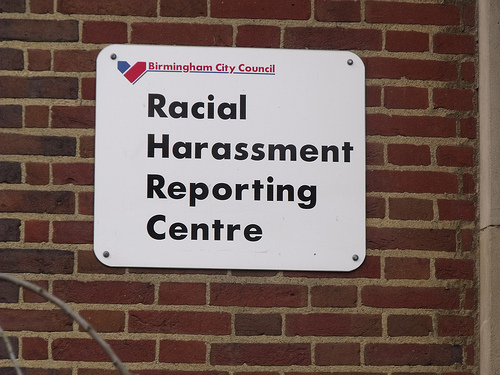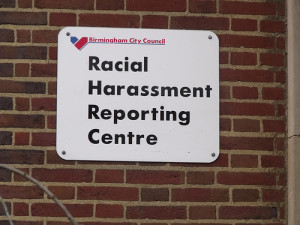A double standard for the N-word

Have you ever talked with your friends or parents about the “N” word? Do you realize the trouble adults have gotten into by saying “Nigger” at work or in text messages or emails? We only hear about the high profile cases where the user is fired or criticized in the press for saying the word. But African-Americans seem to get a pass when they say “Nigger” or “Nigga” whether they’re being funny or not. Watch a Spike Lee movie and you’ll get a sense of the casual or even endearing use of the term.
A federal jury in a recent case decided that, regardless of color, the N-word (it’s new politically correct spelling) is unacceptable even when coming from an African-American and directed at an African-American. Not one media source covering this trial spelled the word out – all refer to the word only as the N-word. We believe, in the interest of educating our youthful audience, that being forthright about what word we’re speaking of in the first paragraph is essential.
Rob Carmona co-founded STRIVE, a black employment agency in New York. Brandi Johnson worked at the agency and Carmona was her boss. According to testimony at trial, Carmona went on a four-minute tirade against Brandi regarding her workplace attire and behavior. His repeated use of the N-word upset Brandi. She testified that “I was offended. I was hurt. I felt degraded. I felt disrespected. I was embarrassed.” Carmona told the jury that the word has multiple contexts in the black and latino communities, sometimes indicating anger, other times meaning love. This wasn’t the first time Carmona verbally abused Brandi. Previous complaints about him went nowhere so she taped the 2012 rant against her by Carmona.
The jury rejected Carmona’s argument that the N-word is a culturally acceptable term of love and endearment among blacks. They decided that its use in the workplace was hostile and discriminatory. In September, 2013, the jury awarded Brandi $250,000 in compensatory damages and $30,000 in punitive damages.
What do you think of the court’s decision? Do you understand the double standard presented to the jury? Have you experienced this at school or work? Did the jury do the right thing even though the plaintiff and defendant were African-American or should there be a double-standard for use of the term? Why or why not?
We wrote about this in an earlier post regarding the N-word in American literature. You can see it here.



